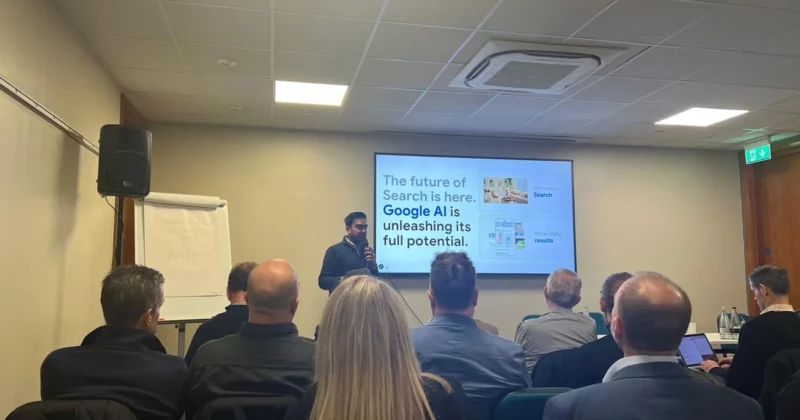A PMS for “Lean Luxury”
Ruby Hotels defines its approach to hospitality as “lean luxury” which is all about focusing on the essentials.
“Through focusing on the essential, you’re able to provide a high-quality product that provides a good value,” Lucas said. “It can cost a decent amount of money to stay at our hotels, but the quality you get for your money is high. The mattresses you sleep on are luxurious. Our showers are high-quality rainforest showers. Everything from the shower gel and shampoo to the towels makes you feel like you’re staying in a luxury hotel. We can provide this for our guests by cutting away the less frequently used things that make the costs add up.”
Lucas uses coffee as an example. “At most hotels, you can drink mediocre tea or coffee from a machine in your room that you have no idea when it was last cleaned. With Ruby, we don’t offer that, but instead, provide coffee from a top-of-the-line barista machine. We have a barista waiting for you to make you the nicest coffee you can imagine. That’s what we mean by lean luxury – taking the money we save and passing it along to you, but not cutting down on the overall quality of experience.”
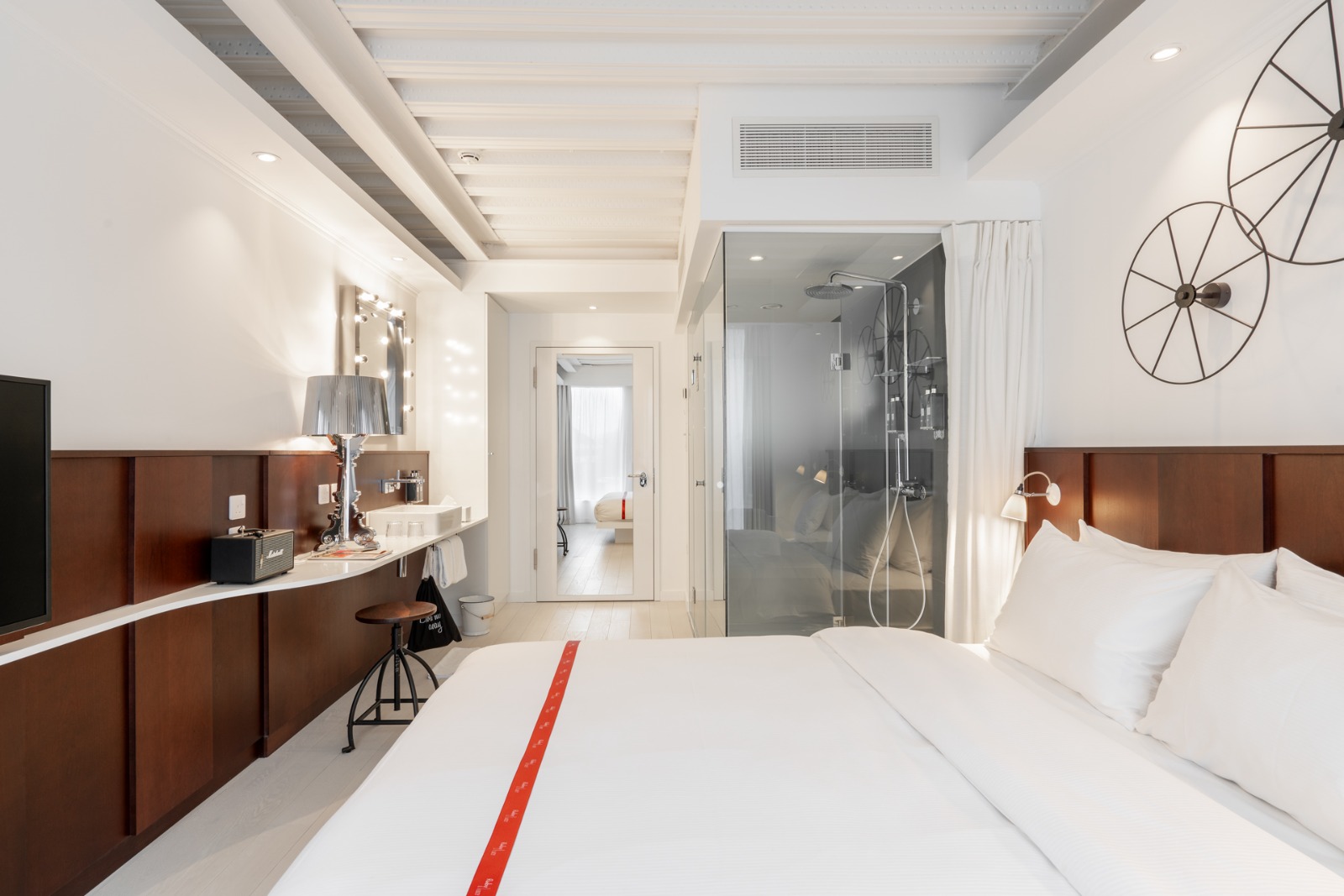
Lucas’s career journey in hospitality
Lucas fell in love with hospitality while working in a restaurant and barkeeping during his studies. “In hindsight, it was one of the most fun times I had in my life,” he said. He studied innovation management during his master’s studies in Sweden, and his part of the program required building a start-up company which would become the subject matter for his thesis.
“I ended up working with a company called Bookboost which was an API-first data platform for hotels and helped them figure out the product-market fit. I helped them open up the market in Germany and worked with hotels that included Ruby Hotels. From there, I had the opportunity to go in-house and work at Ruby and build up the technology team in this company, helping them transition to a modern digital platform to run their business.”
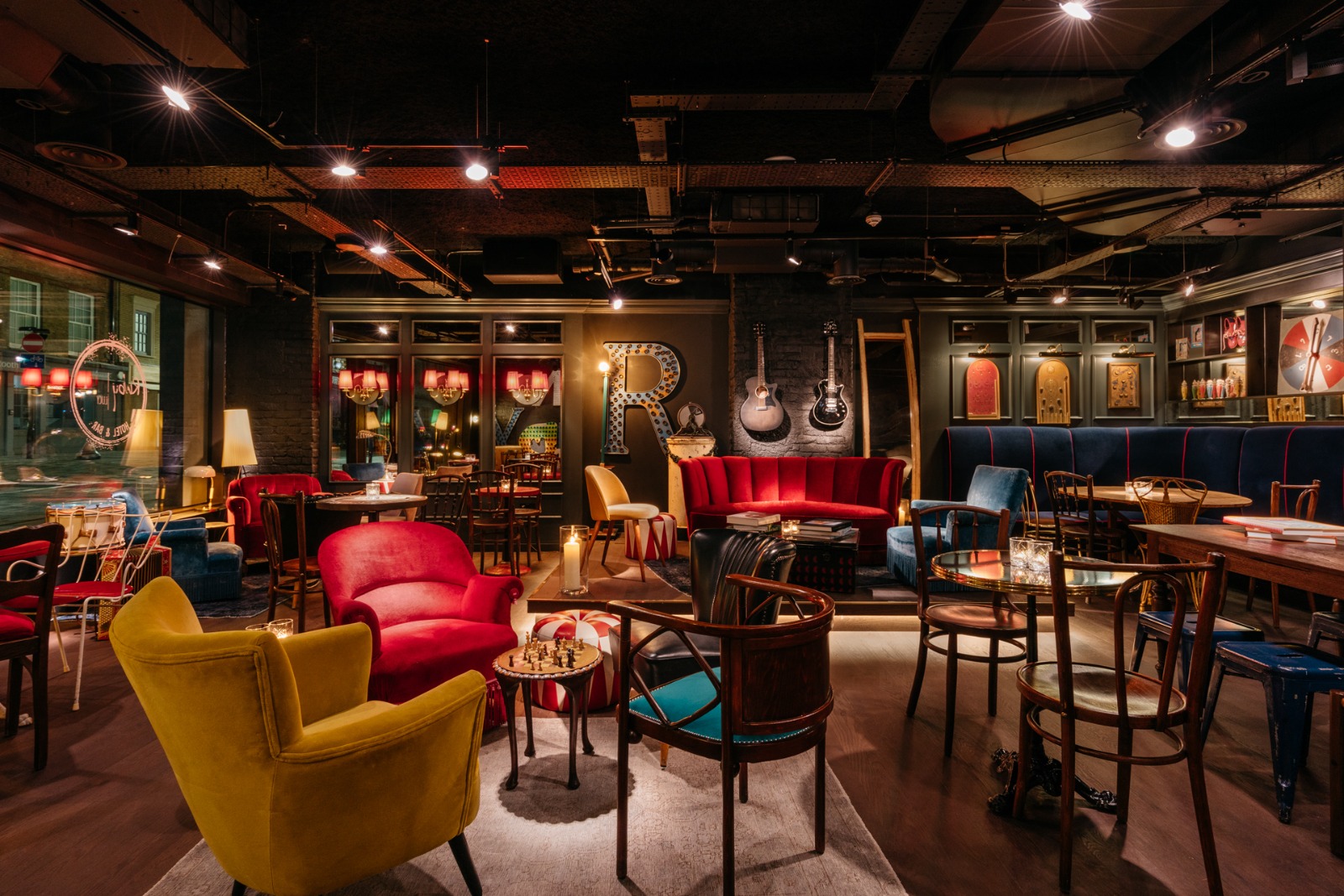
Tasked with navigating change
Part of the mandate for his new role was cleaning up the technology infrastructure that had become messy with lots of point solutions. As the company wanted to grow in the future, it needed more integration and automated processes.
In Lucas’s experience, it’s quite common for young companies to accumulate a lot of point solutions over time as they are building towards a big vision and looking to technology to solve the pain their teams experience along the way.
“Of course, there are some core systems everyone needs to have, like a property management system, but there’s also a lot of little tools that solve specific challenges in the business, and people end up pushing the limits of things like Excel until they don’t work anymore. Without a central department overseeing everything, every department starts to build its own tech stack. You end up in a situation with a lot of siloed data, and scalable growth becomes challenging.”
Lucas uses the example of selling event areas (function rooms and meeting spaces) to highlight the problem of this approach. “How do we manage all of the various charges between the hotel rooms and the event rooms on the same invoice? It’s moments like these where we realize maybe we cannot keep going as we are and need to get everything in order.”
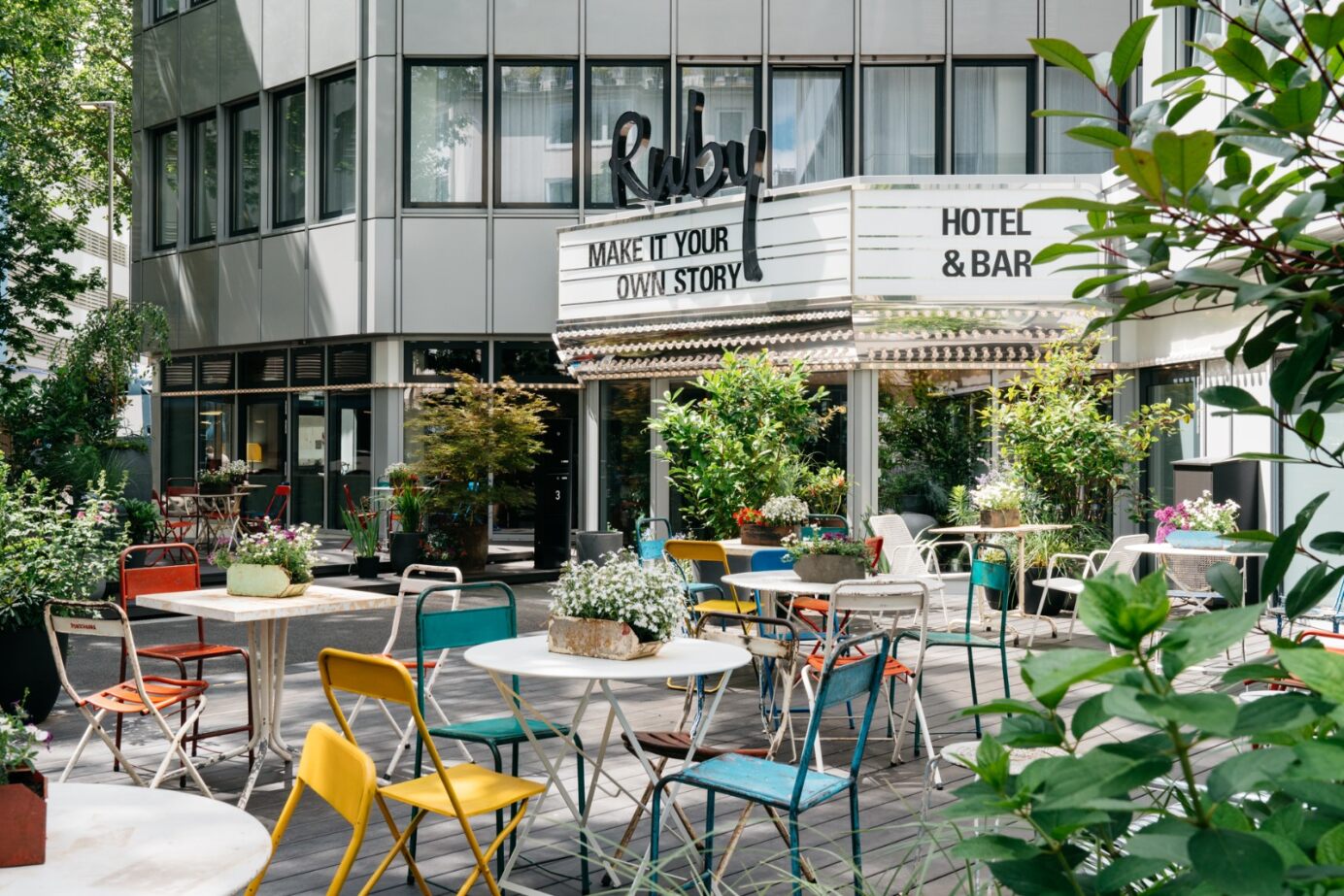
Balancing automation with emotion
“Ruby is a company where, on one hand, we strive for a lot of automation, but on the other hand, we have a very emotional product,” Lucas told us. “Our business is built on emotional connections with our guests.”
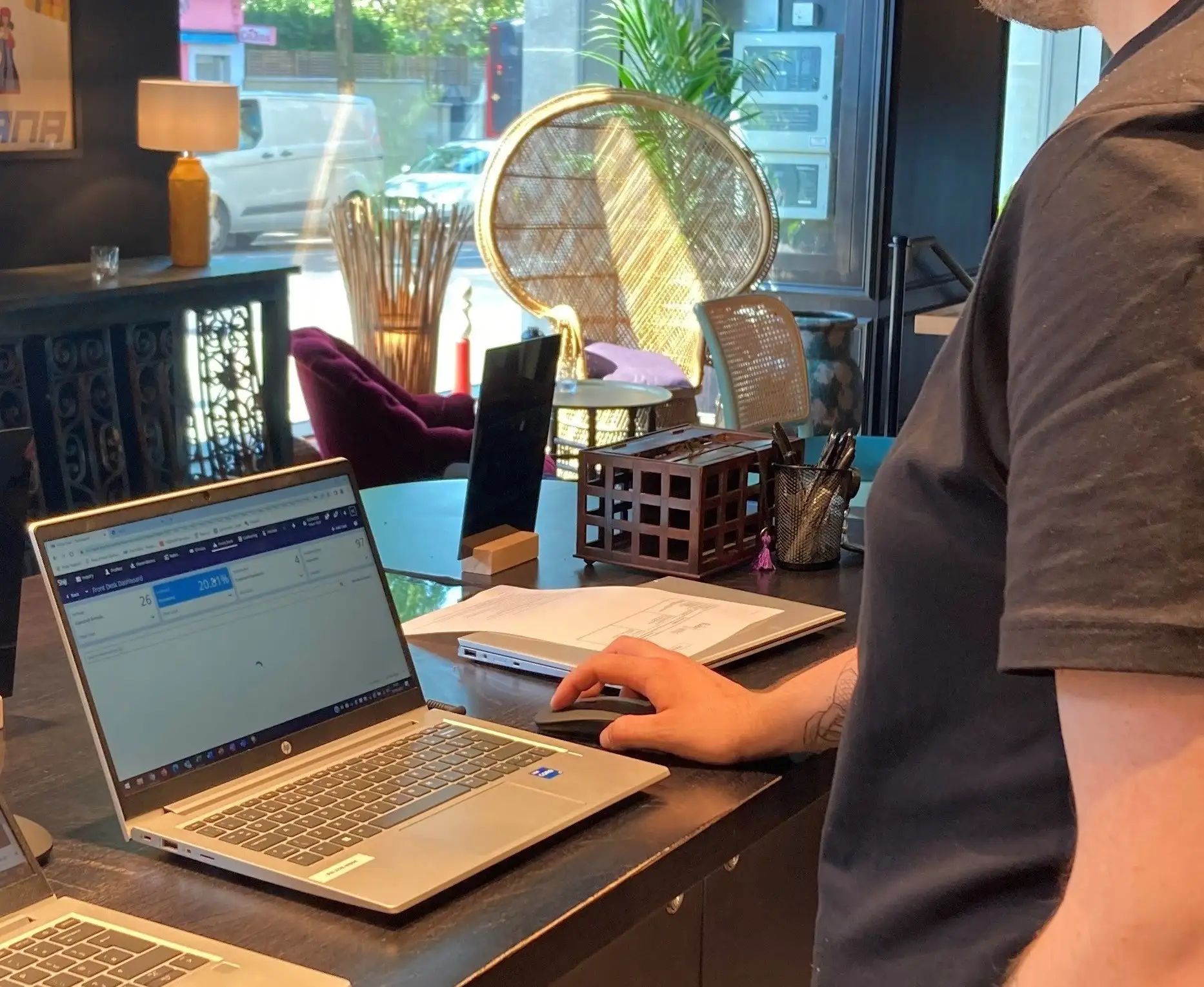
An example of this is that when you check in you can use an iPad to enter details and get to your room quickly. Yet, as Lucas quickly points out, “We don’t want to automate every touch point because we want to be able to say hello to the guest, and see how we can provide them with good service and human touch.” Part of Ruby’s approach is they don’t have a traditional front desk, but have their staff (whom they call “hosts”) greet guests more casually, and welcome them into the hotel.
“We hire for personality, and want our people to bring their unique approaches to interacting with our guests in a way that builds relationships with each of them.”
At the same time, as a young brand with growth ambitions, scalability is key – and Lucas knows that automation is going to be core to their ability to do this. “Automation requires many interfaces, where different departments can work with each other. Do you need ways to manage your employees and how they get paid? Do you need back-of-house processes, where if a sales manager sells a group, that information is shared with the revenue department so that the pricing can be optimized?”
This is the challenge that Lucas faced at Ruby: automating, but also finding a PMS solution that was increasingly customer-centric.
“We wanted to get really close to our customers to be able to offer them more of what they wanted and also capture revenue from that. We knew that doing so required breaking up silos and getting data flowing together.”
In Lucas‘ experience, a lot of hotel technology strategy tends to be very tactical and reactionary, and a big part of this is due to how the market is structured. There are a lot of independent hotels and global chains, but not many mid-sized brands that can invest in technology. “That makes technology adoption very expensive not only for the hotels but for the technology providers to bring innovation to our industry.”
For many hotels, the lack of an extensive in-house technology or digital team means they are unable to make extensive modifications to the technology they purchase. Often, they buy “off-the-shelf” products and PMS solutions that might not work perfectly for their specific needs. This situation leads to many hotel companies being technology-averse.
APIs: the key to unlocking opportunity in hotels today
Several times in our conversation, Lucas brought up the importance of APIs in hospitality technology today.
For him, the opportunity with technology is not only making processes more efficient but also being the driver of all innovation – starting from scratch and creating new ways of working that would be impossible without technology.
“APIs are the connective glue that links everything together to enable these novel solutions,” he told us. “They make it possible to create connections between disparate data sets that are impossible to do as humans.”
Lucas provided an example of extracting public financial performance data from group business customer companies and feeding that to their sales reps so they can be proactive about managing their core corporate accounts. The new workflows raise flags early on and give their salespeople data to drive their conversations and engagement approaches.
“This streamlines a lot of mental effort for our team, and it’s just an example of what API-first technology integrations enable us to do. It’s also an area where Shiji is really good.”

How Ruby started working with Shiji
Ruby Hotels had a long-standing relationship with Shiji ReviewPro to collect and process guest feedback data. Over time, they have seen Shiji’s technology stack evolve significantly, especially with the launch of Shiji Enterprise Platform, the cloud-based PMS that was designed for global and regional hotel groups.
“We were one of their first customers,” Lucas shared. “I joined Ruby 3 1/2 years ago and the decision was already in place to use the Shiji Enterprise Platform, which contains a PMS, Guest profile management, housekeeping, and more. I remember thinking early on, ‘We can do whatever we want with this platform. We have maximum flexibility.’ And that’s still true – even more so today than earlier.”
A key part of Lucas’s continued work with Shiji has been the collaborative nature Shiji takes with them.
“I got the sense that Shiji not only wanted to build something special, but they had the capabilities to do that. Our whole philosophy is partnering with companies that have a mindset of building together. We needed to know that there was a healthy product team in whichever companies we partnered with, and I feel that with Shiji. Their product managers have said that anytime we have a feature request we can have a conversation about it and the collaboration is very streamlined.”
It’s a working relationship that is positive and productive for both companies, Lucas says.
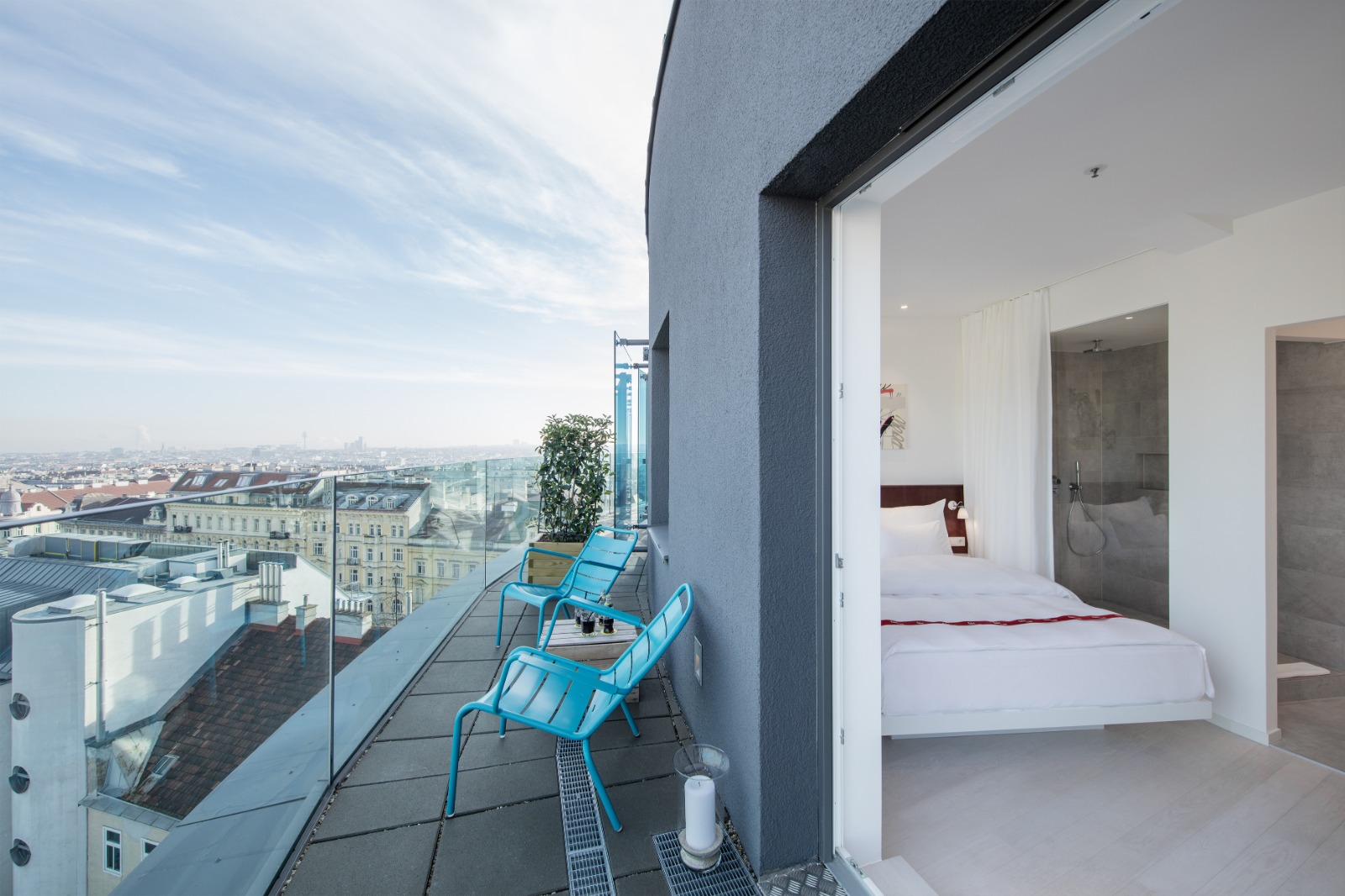
Criteria that Lucas evaluates to continue working with Shiji
While Shiji has a long-standing relationship with Ruby Hotels, its commitment to collaboration is what keeps them working together.
“Shiji has always made us feel important to them and proved it with the way they act. I always feel that they are looking for new solutions in better ways to support us.”
“They always put people in our projects that made the difference. When those people weren’t available because of other commitments, senior leaders just stepped in to make sure nothing was dropped. The people we get to work with make a difference for us. I feel like we got more, and better experts on the areas that we were working on than any other technology company could provide.”
What Lucas is most proud of building with Shiji
Lucas shared a number of use cases from support to sales where Shiji Enterprise Platform’s API technology has provided benefits but a recent example is their group booking technology.
“Group booking technology is notoriously difficult because there’s no single solution out there that is perfect for us. All the big players don’t offer the level of API connectivity that we need, but Shiji does. From the early stages of our design process, we were confident that Shiji could provide us with the data we needed because they are API-first. We never felt like we needed to do more feasibility studies because we knew they provided the support we needed technically to make this project a reality.”
Strategic advantages of working with Shiji’s PMS Shiji Enterprise Platform
After years of working with Shiji, Lucas anticipates continuing to be able to mold their digital product offerings to provide best-in-class experiences for their users.
“We will be able to provide functionality that makes us more relevant. And when I think about that in terms of customer lifetime value, this relevance and useability make people more loyal to us and make them more likely to stay with us more often. This is where great technology has such an important role in driving revenue and business value.”
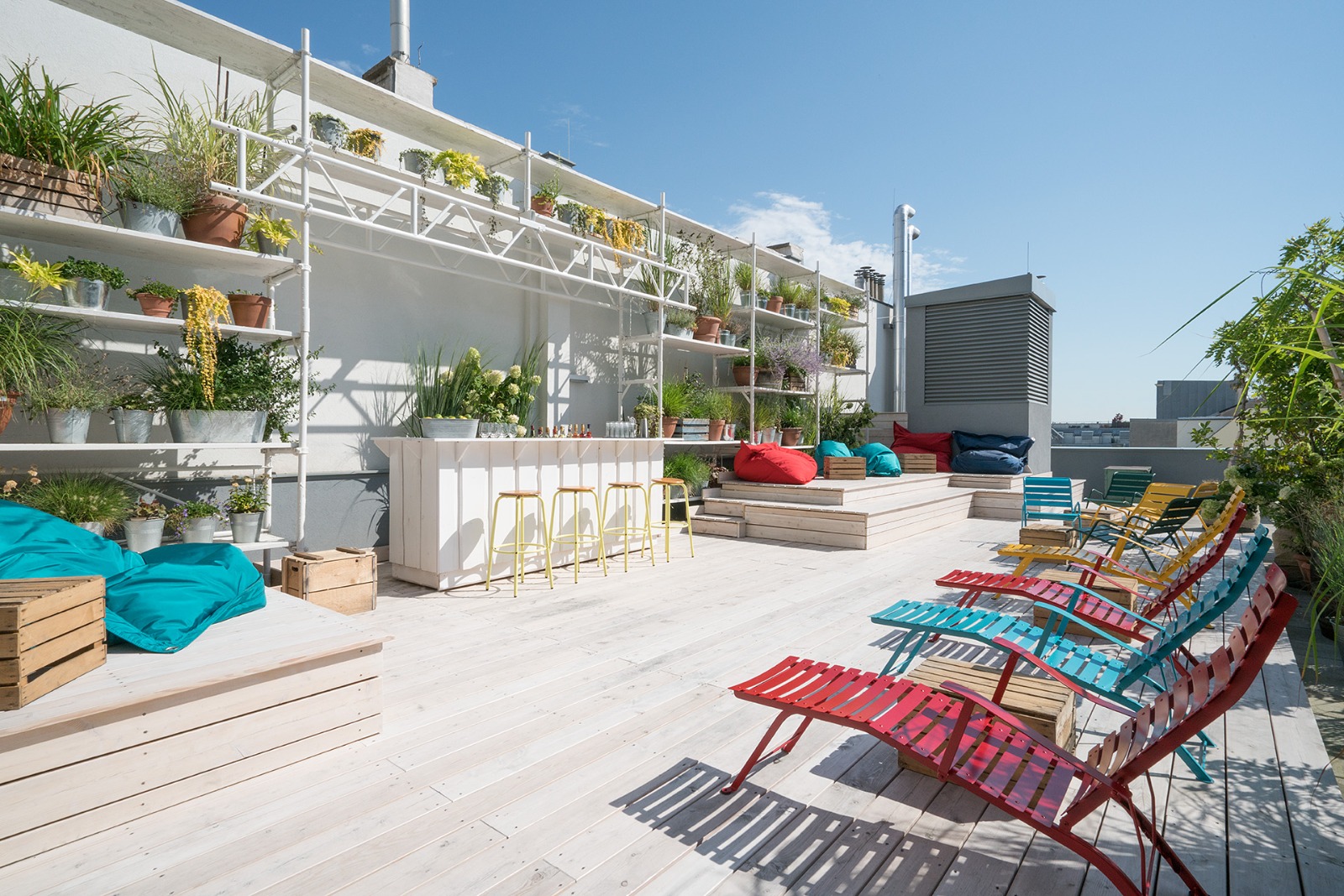
Building better ways to make emotional connections
Lucas told us about the need to make emotional connections in hospitality, and how technology can help with this.
“Where are you interacting with digital products the most is during planning and booking. The arrival is also an important touch point – if you stay with us for three nights, the first time you enter the room is not the same as when you came in the third time.” Each of these touchpoints has an opportunity to build the connection, Lucas says.
He uses the example building around check-in kiosks as an example. “As soon as I enter my name, the kiosk starts interacting with me using my name. We designed the check-in process to feel more like a chat conversation instead of a big form to fill out. It’s the little touch points like these that affect the guest experience and the way the guest feels about our brand.”
Better technology has increased guest satisfaction
A recent analysis of online reviews shows Ruby Hotels has achieved remarkable growth in guest satisfaction, with an impressive increase in various key aspects across the business:
This growth has exceeded the European average, where mentions of Technology have increased by 2.5 points, Reception by 3 points and Service by 3.5 points, illustrating their commitment to an elevated guest experience. The takeaway? Guests appreciate the improved technology-powered experience Ruby Hotels offers.
Empowered to build and serve
With Shiji Enterprise Platform, Lucas and his team are now able to think about ways to extend this approach through things such as helping their hosts instantly see who is checking in so that they can greet them with some context.
“We want to keep moving in the direction of becoming more personal with our guests, and see technology as an enabler of that.”

